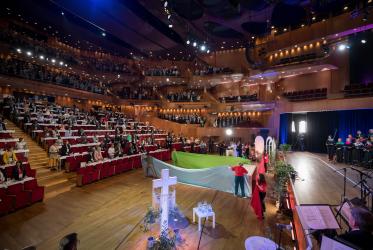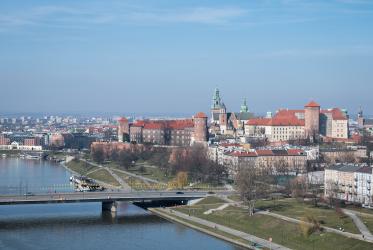The World Council of Churches (WCC) welcomes the recent statement that, after 2010, "the LWF and WARC would no longer hold global assemblies of their own", made by the joint meeting of the Officers of the World Alliance of Reformed Churches (WARC) with the Executive Committee of the Lutheran World Federation (LWF). The statement affirmed that the future of ecumenical assemblies is a matter of crucial importance for conciliar ecumenism in the 21st century. At the same time, it recalled the spirit of the 1997 WARC General Council recommendation to organize, if possible, future meetings of the General Council "jointly or concurrently" with the Lutheran World Federation and the World Alliance of Reformed Churches.
In response to that recommendation, discussion between the WCC, LWF and WARC affirmed in 2000 the commitment of the three ecumenical organizations to strengthen their cooperation in planning their respective assemblies, while further developing their vision of a common assembly'.
The 9th Assembly of the WCC, meeting in 2006, recommend that the WCC pursue an "ecumenical assembly that would assemble all churches to celebrate their fellowship in Jesus Christ and to address common challenges facing the church and humanity" (Policy Reference Committee Report paragraph 5).
The recommendation was supported by the Assembly principally as a witness "toward visible unity and a shared Eucharist", but also as a practical challenge to "explore the feasibility of a structure for WCC assemblies that would provide expanded space for Christian world communions and confessional families to meet, for the purpose of deliberation and/or overall agenda" (Policy Reference Committee Report paragraph 25d).
The recently established Joint Consultative Group between the WCC and various Christian world communions will meet in May 2007 and is expected to significantly strengthen the wider discussion on the feasibility of an ecumenical assembly' in 2013 and to advise the Central Committee, when it meets in February 2008.
The recent statement by the LWF and WARC affirms concretely the intention of these two communions as partners in the process.




